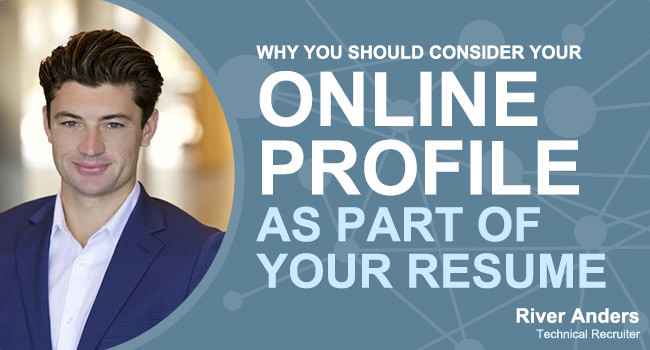
The Hidden Gems: How to Attract Passive Job Candidates
Jessica Bailey

Gone are the days of only needing a traditional resume to apply for a job or expand your professional network. Nowadays, like it or not, LinkedIn is a critical extension of what you have on paper.
Whether you’re searching for a new position or you’re open to one, “having a detailed and search engine optimized LinkedIn page can do a lot to make you visible and marketable to decision makers” like recruiters and employers, states Glass Door.
Here are a few ways your online profile can work for you:
It helps find common ground.
The Networking tab on LinkedIn and the People You May Know feature helps identify other professionals you either share skillsets or interests with, or those you’re linked to through other contacts. This can help you find people you may have common ground with, and in the same way, get your name on their radar as well.
It demonstrates your professionalism.
More than any other medium in the professional space, LinkedIn is a hub for potential employers and recruiters searching daily for prospective candidates. If your profile is lacking or outdated, it may give the impression you don’t qualify for a position when you actually do. Or worse, it could make it seem you’re not fully prepared or together.
It can expand on what’s shown in your resume and add some personality.
LinkedIn provides the space to expand and complement what’s in your written resume. Go deeper into your professional history, add extra sections that highlight your volunteer experience, certifications or any awards that you’ve wrong. Use more casual language (although not too casual). Employers should be able to get to know you better, see your face in a quality headshot, and get a better handle on the skills and personality you bring to the table.
It can help you receive endorsements and validate your expertise.
LinkedIn allows you to name specific skills and then receive endorsements of those skills from your peers or former employers. This is especially valuable to recruiters or potential employers who need to see how you’ve used what you say you know. It also gives them a chance to read from others how your experience has come into play and what kind of person you are in the workplace. Make sure you actively request recommendations on LinkedIn from people you’ve worked closely with on projects in the past – and of course, return the favor.
It can help serve as a home base for your experience.
Not every potential employer needs to know everything about your experience, the awards you’ve won or certifications you hold. As you’re creating customized resumes for each position you apply for, LinkedIn can be your home base for complete and detailed resume content. That way when you’re submitting applications for specific jobs, you can grab details from your profile as you need them and incorporate them into your traditional resume for that position.
It can help build your professional network. The most obvious reason to keep your profile up to date is so that you can expand your professional network, increase your visibility among people in your industry and with your specific skillsets – or people searching for candidates with those skillsets. Apart from helping you take the first step in relationships by already identifying what you have in common, LinkedIn can mean the difference in finding a position and not.
According to a study by ResumeGo, candidates who include a link to a comprehensive LinkedIn profile on their resume have a 71% higher chance of getting an interview than those who don’t include a link or those with a link to a bare bones profile.